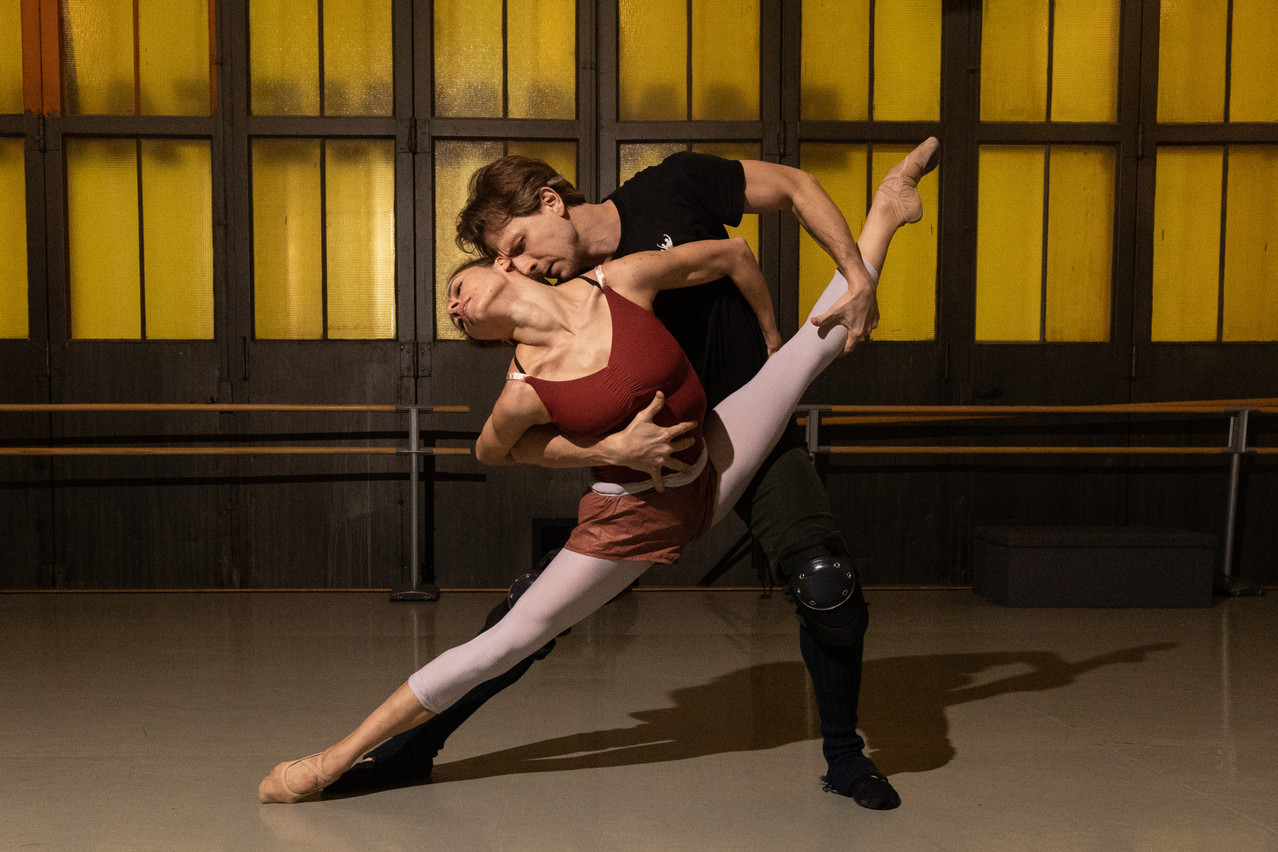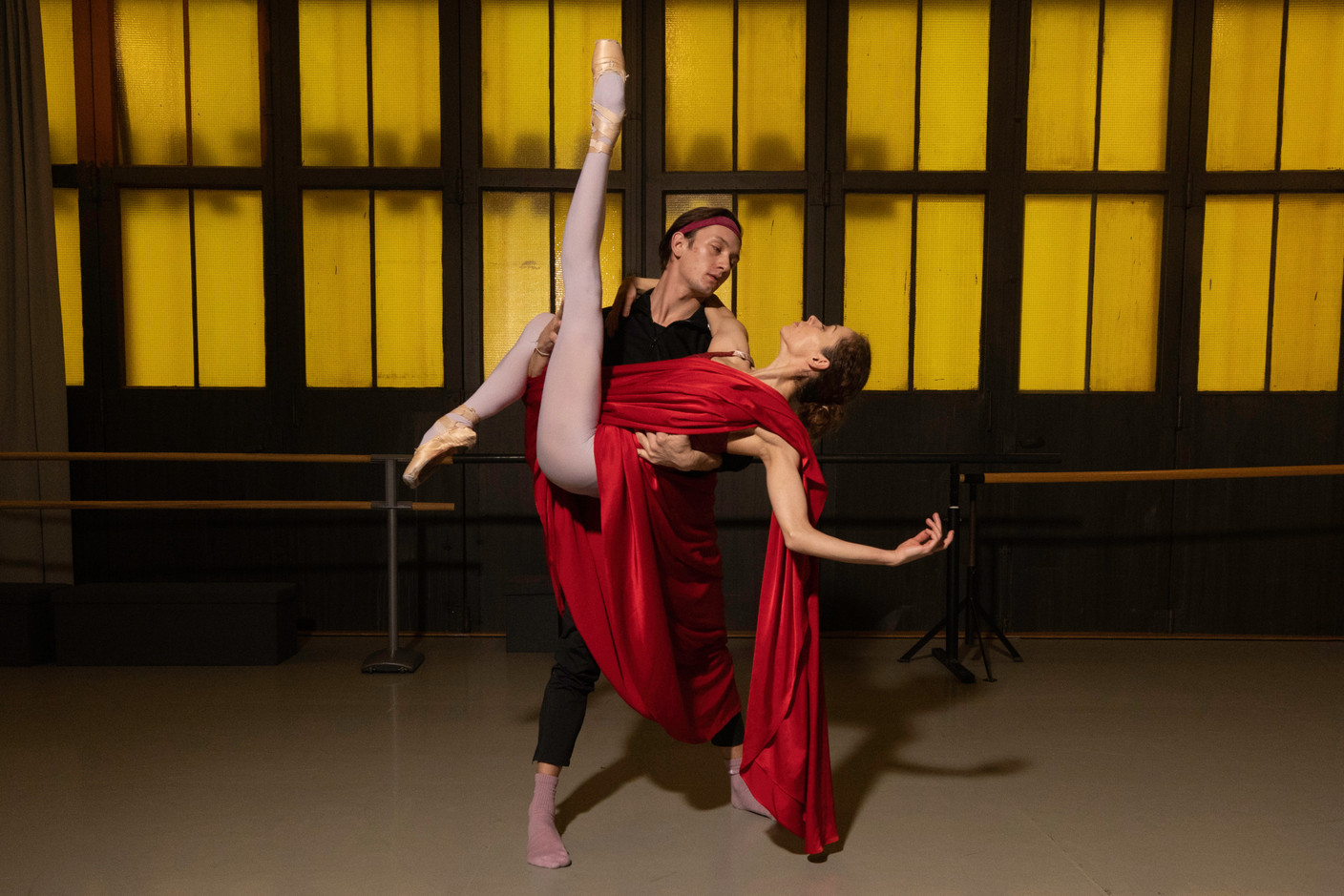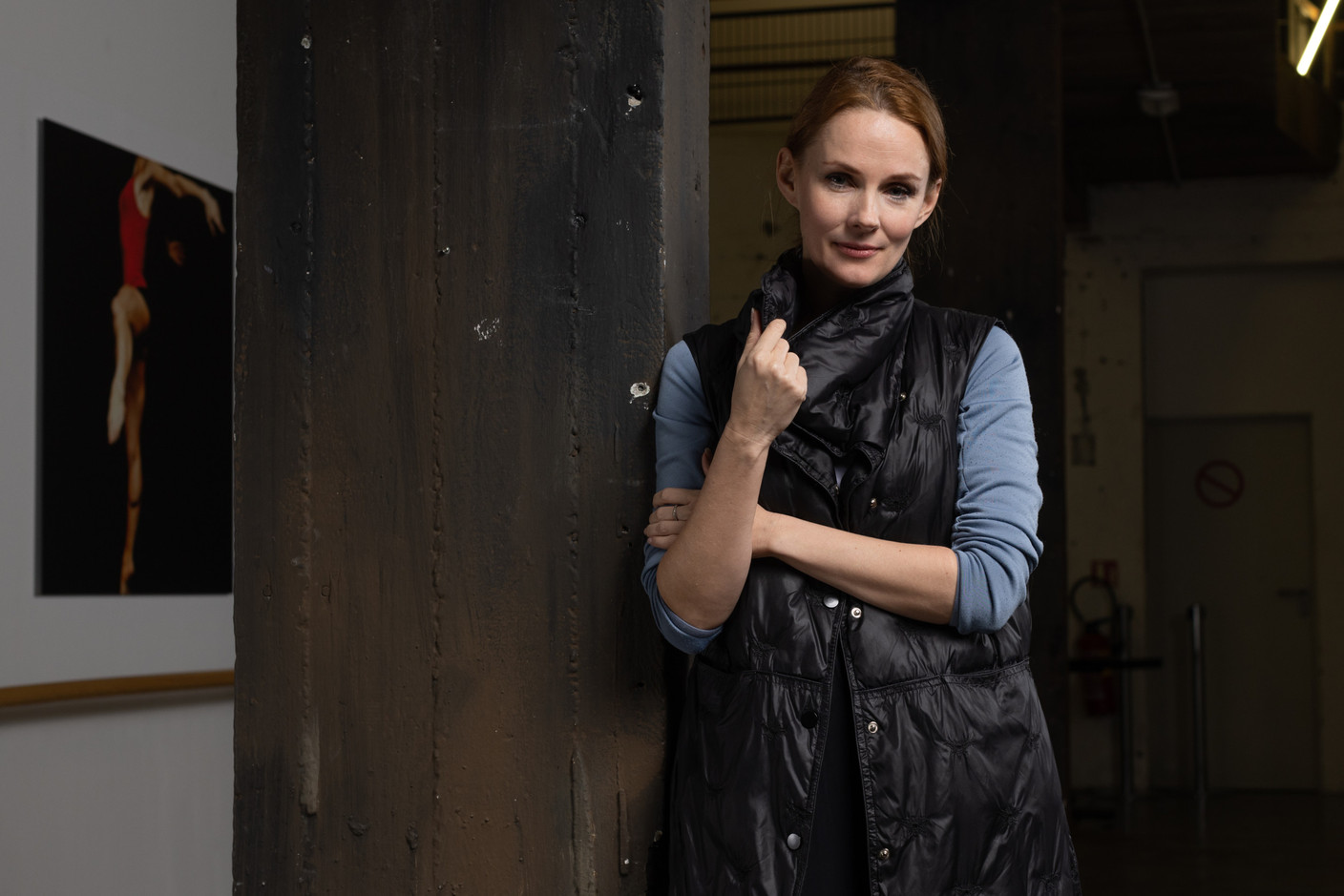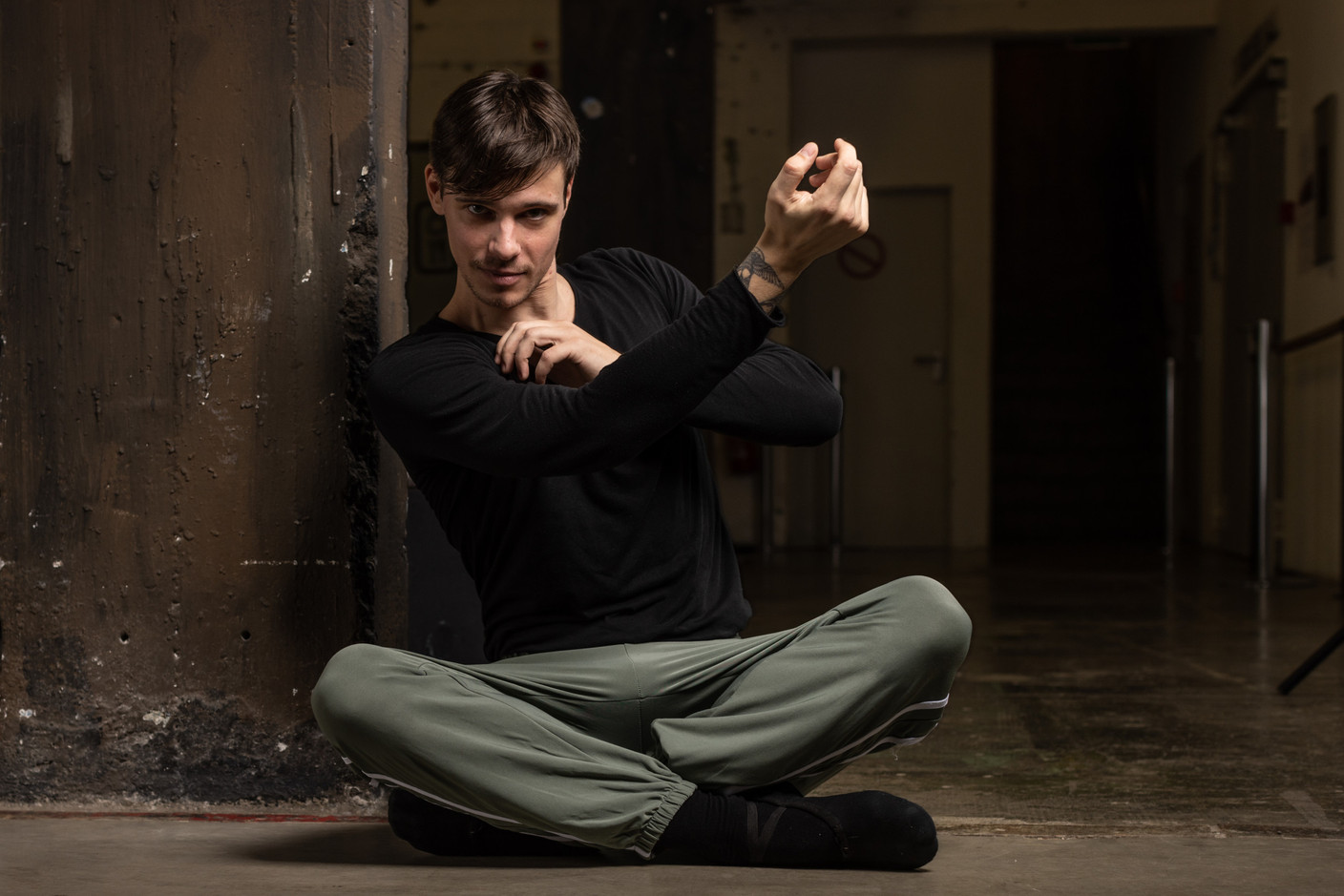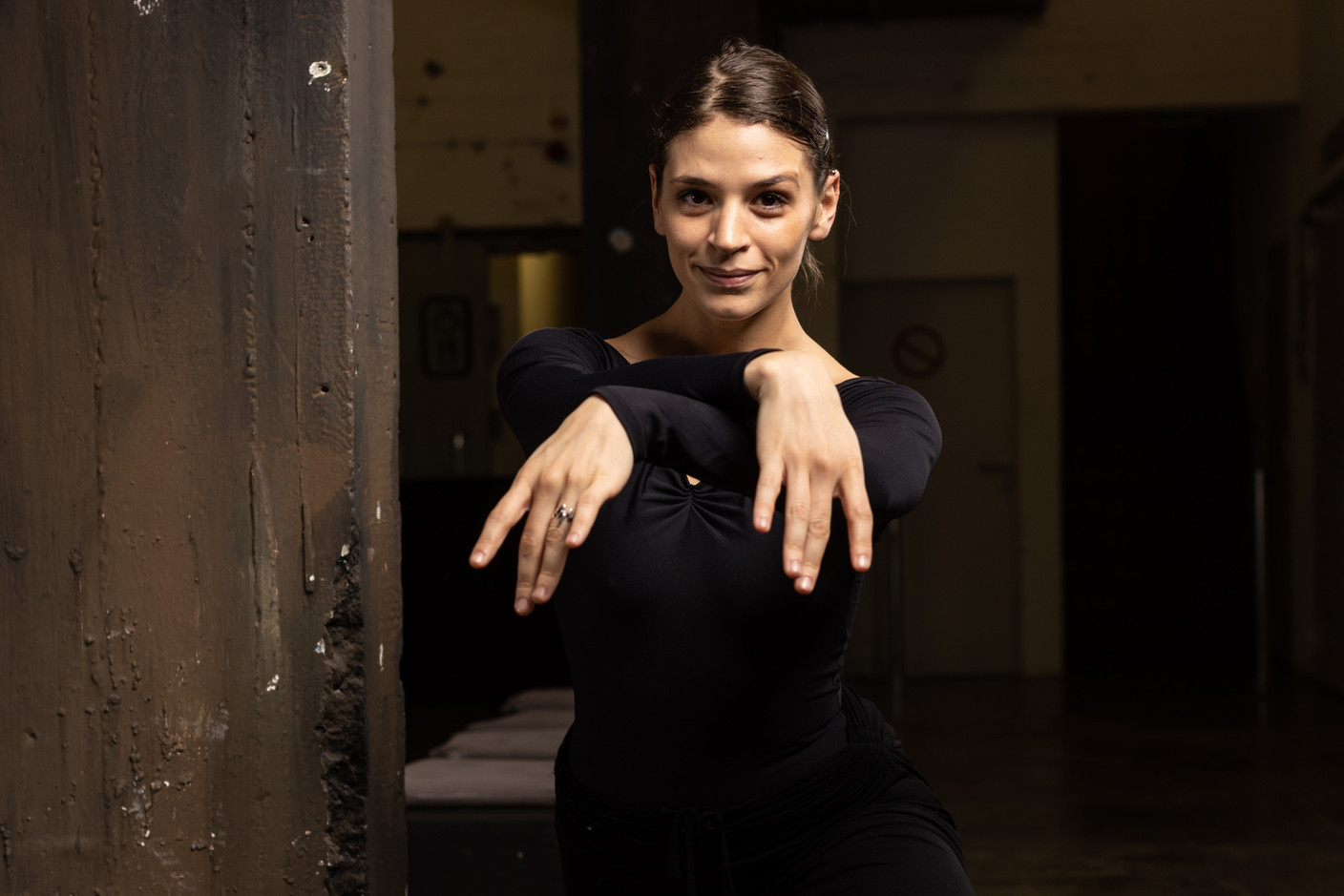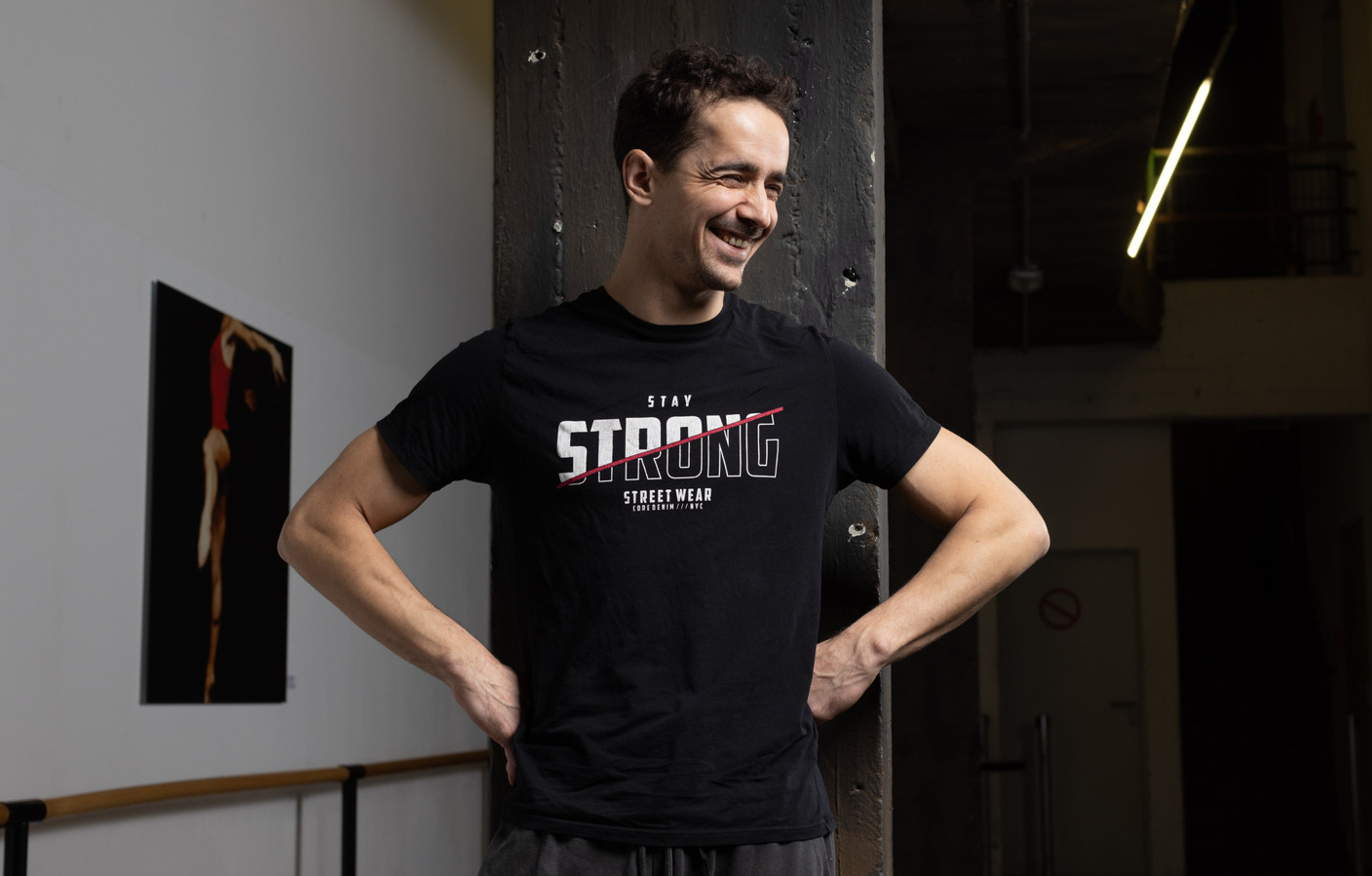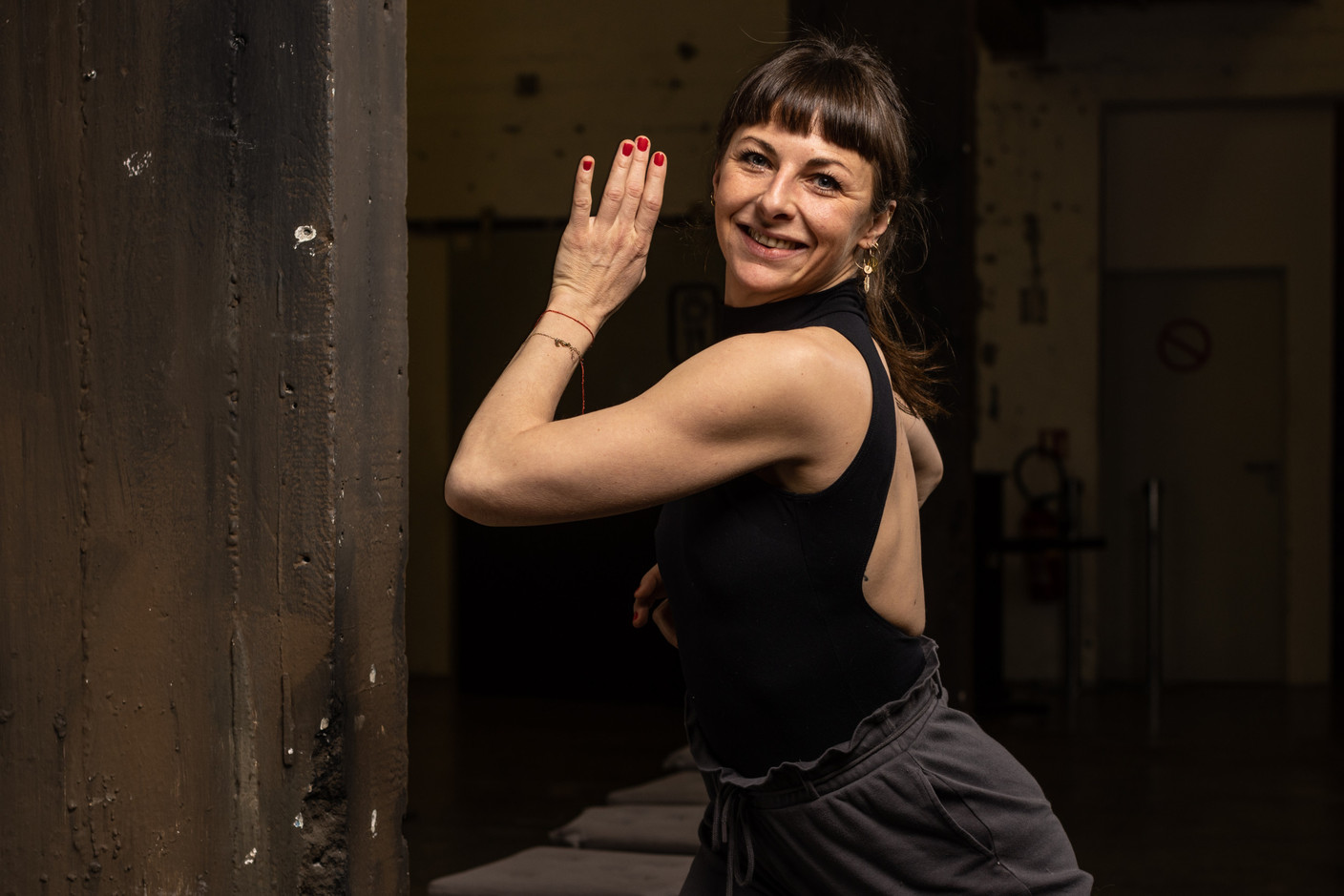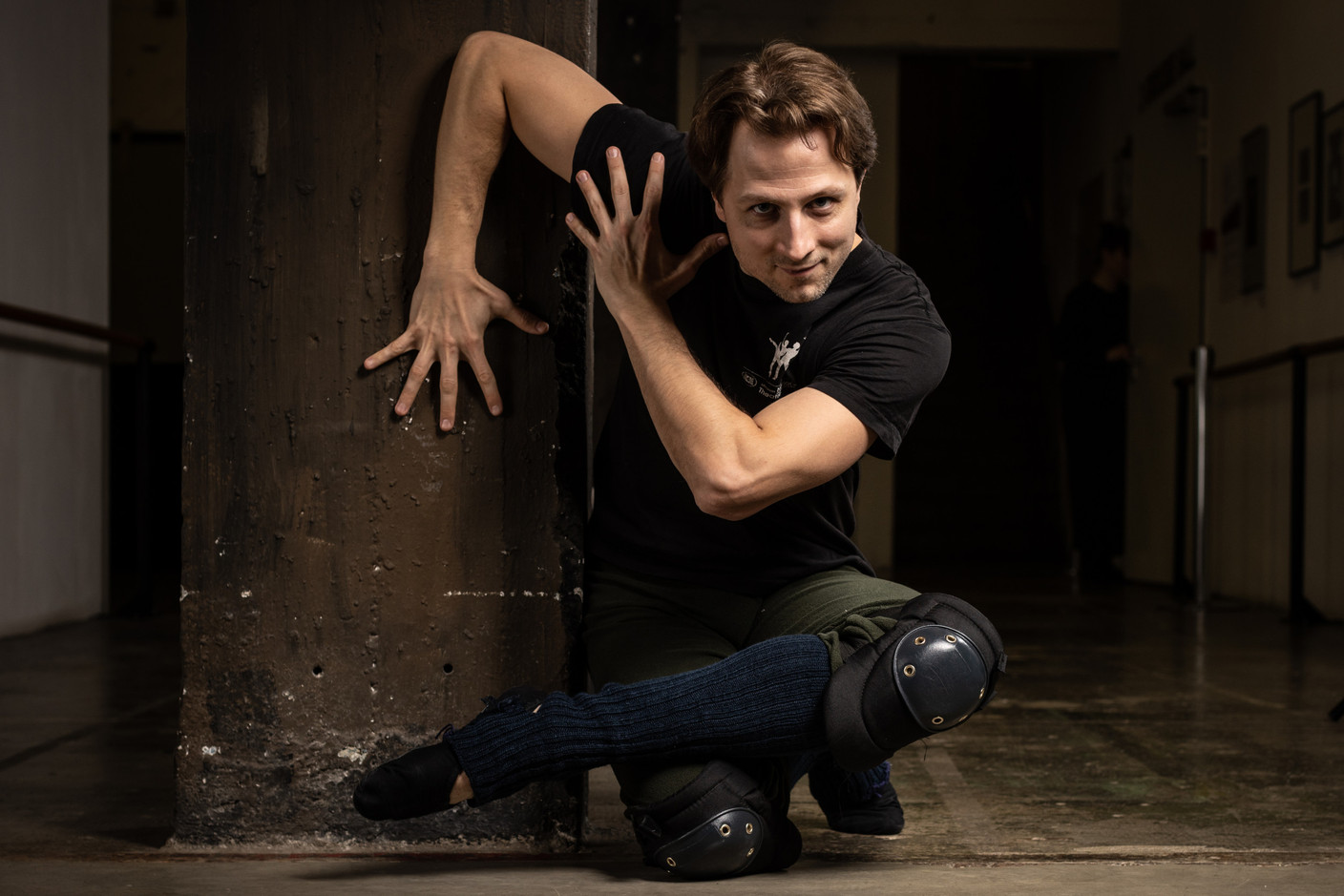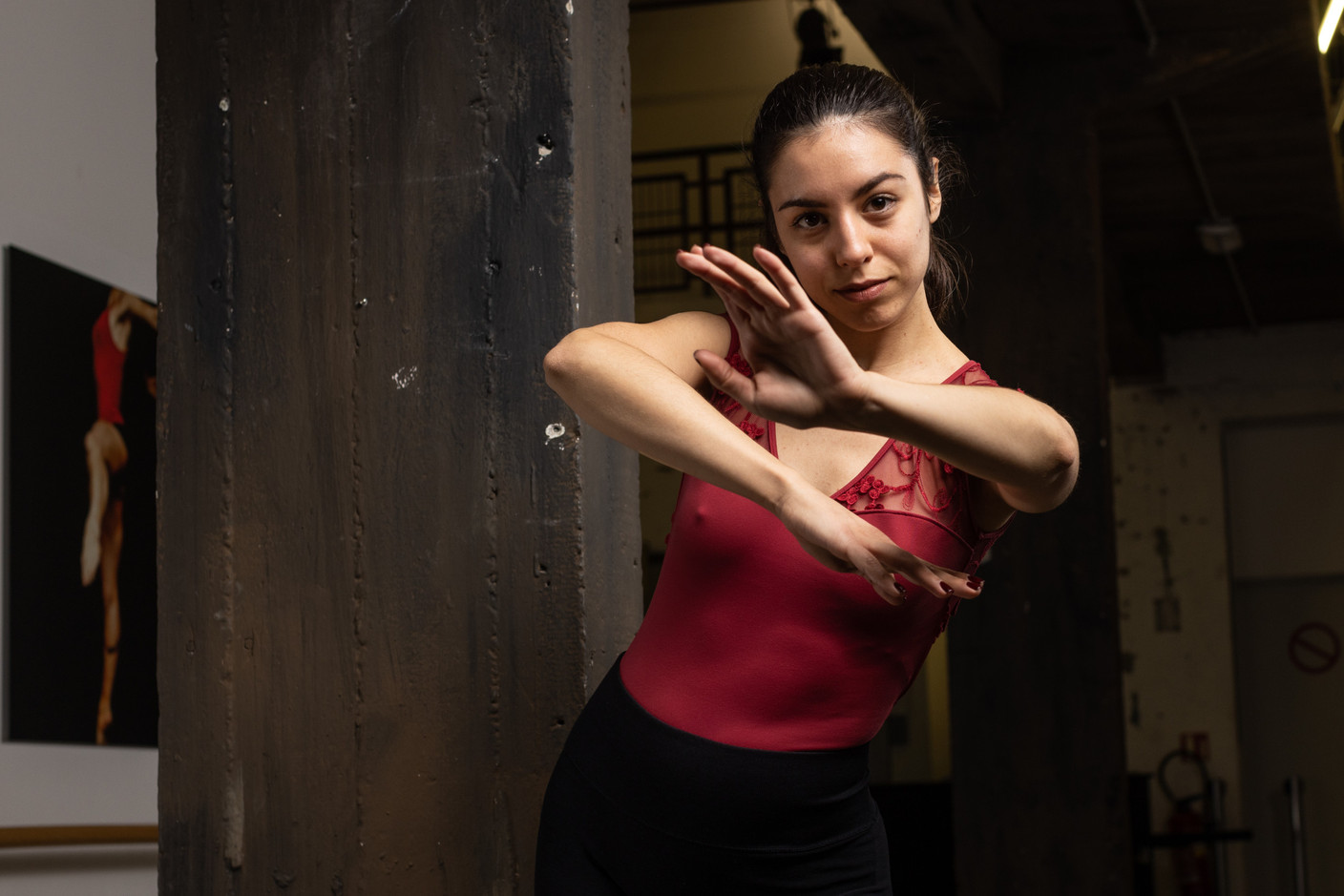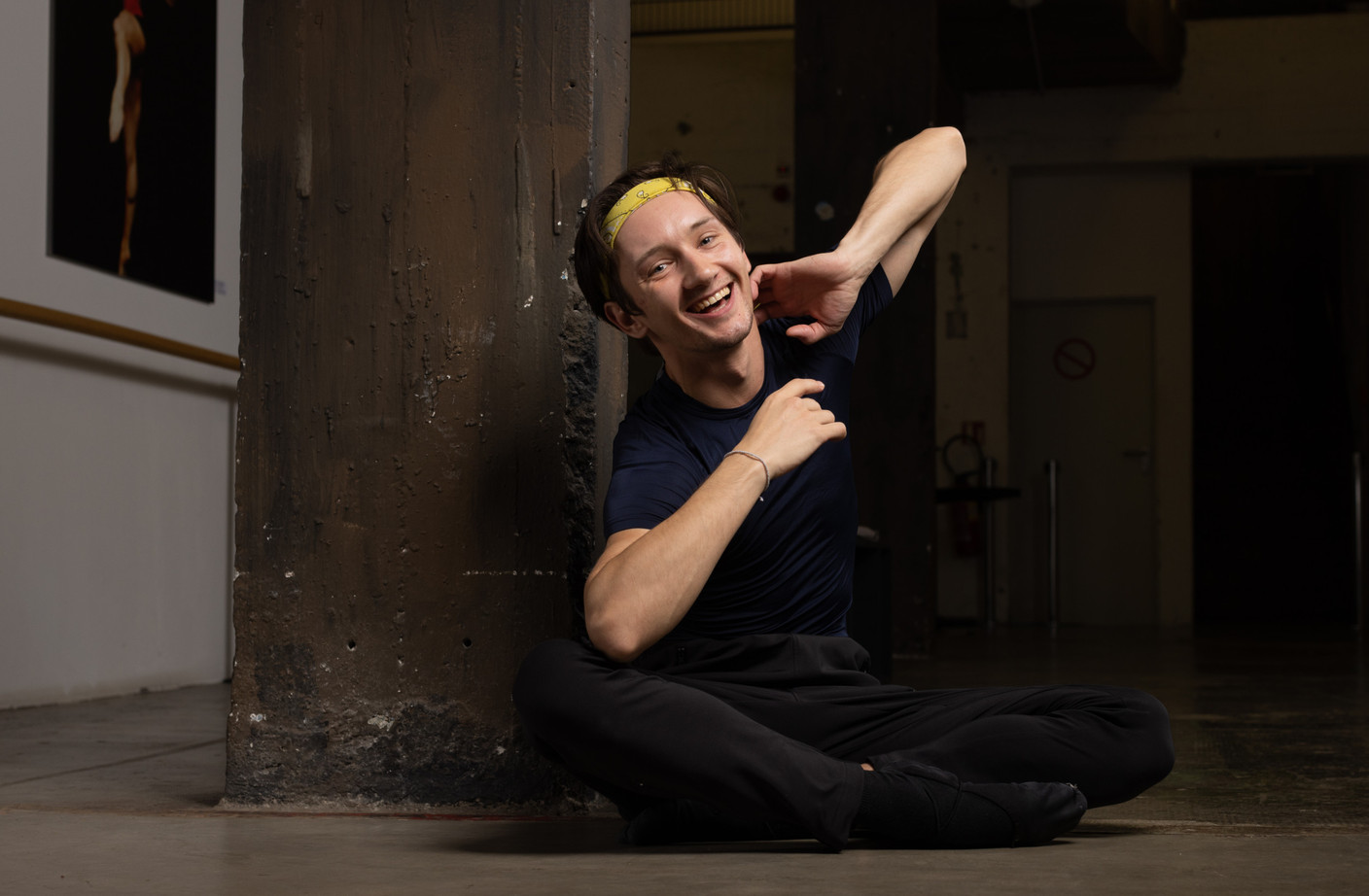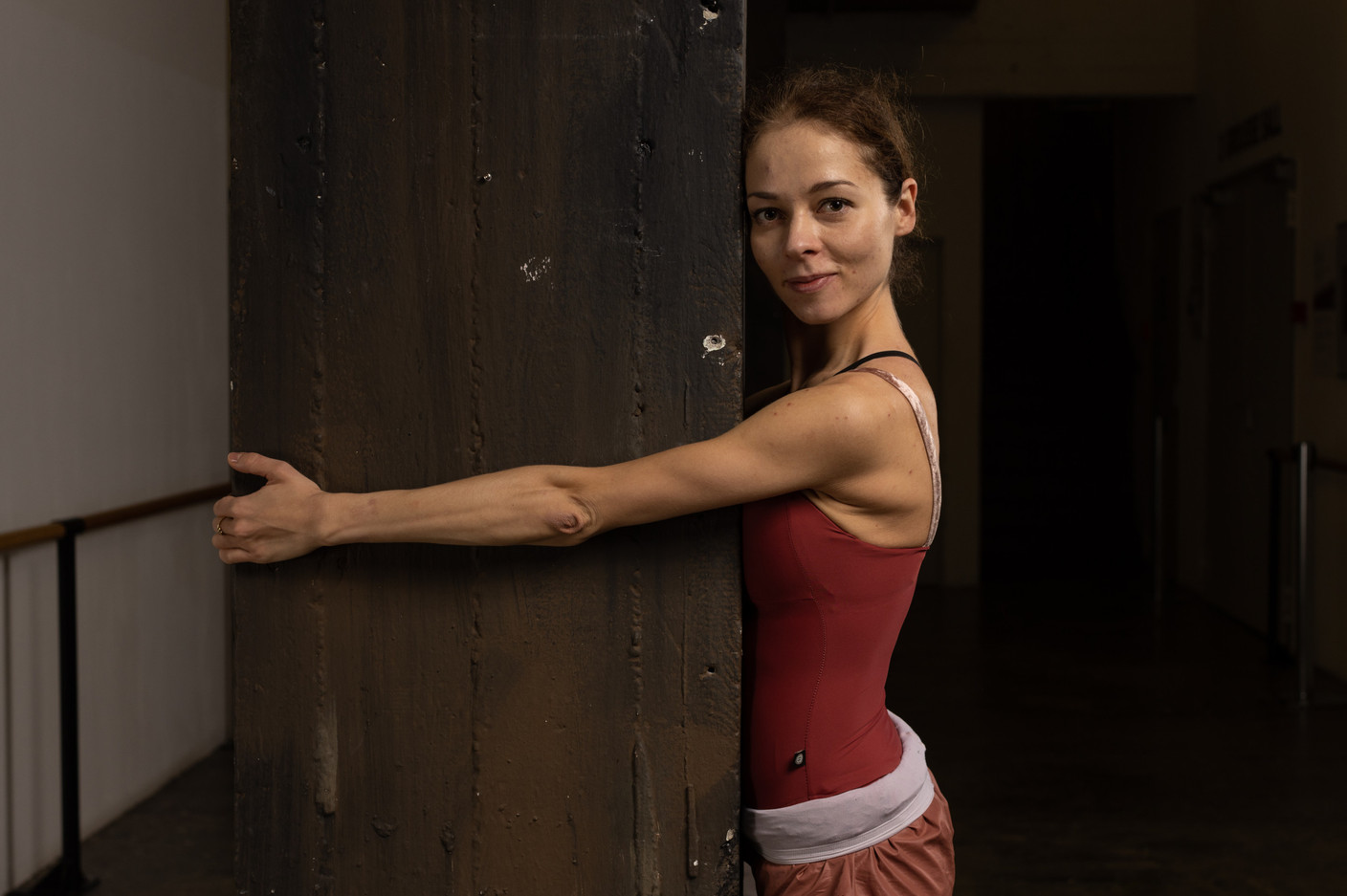There are two things that were surprising during the research around this encounter: the poster of the show, which shows a female body clad in a leather jacket--far from the usual depictions of Prosper Merimée’s Carmen--and the star studded cast. A quick look at the company’s website reveals a series of international artists from the Moscow ballet, Mariinsky theatre, leading soloists and premier dancers from the National Opera of Ukraine, and others from Luxembourg, France and Argentina.
It is chance in some cases and misfortune in others that brought the cast together. While founder and choreographer Volha Kastsel--a Belarussian native who moved from Germany to Luxembourg five years ago--or co-founder Victoria Tvardovskaya, a Belarus-born dancer who was a soloist at the Moscow classical ballet theatre, arrived in Luxembourg through their partners’ careers, for the male dancers of the spectacle, it was the war in Ukraine that brought them to Luxembourg.
From the stage to the war front to the stage again
Meeting Delano during their rehearsals at the Bannanefabrik in Bonnevoie, some of the dancers shared their thoughts on this artistic experience. The spectacle is a collaboration with opderschmelz, Cube 521 and Trois C-L, who organised shelter for the Ukrainian dancers participating in the show.
Oleksii Potiomkin, guest soloist and premier dancer of the National Opera of Ukraine, is currently freelancing around Europe. Before, he was a classically trained ballet dancer in Ukraine. Then, when the war began in February 2022, he joined a volunteer paramedic battalion on the war front, patching up Ukrainian and Russian soldiers alike--the latter, he says, “to exchange against imprisoned Ukrainians.” On his outlook on life nowadays, Potiomkin says: “The war impacts how you think--you don’t know what tomorrow will look like. We Ukrainians have built a tough shell around ourselves.”
Last year, people only spoke about Ukraine because of the war. It’s really important to show our art too. We want to try showing Ukraine from another side: Ukraine is not just war--we have a rich culture.
When he isn’t with his wife and child, both now staying in Italy, he tours around Europe. Being able to practice his craft is an honour for him, he tells Delano. “Dancing and art is also a frontline. It’s best to be in the place where you can contribute most. I’m a dancer--on stage, I can do more. Yes, I’ve been to war but I had a great battalion that is like a family. They didn’t want me to join them where it was even more dangerous.” So, Potiomkin tries to promote another message: “Last year, people only spoke about Ukraine because of the war. It’s really important to show our art too. We want to try showing Ukraine from another side: Ukraine is not just war--we have a rich culture.”
Oleksii Busko, principal dancer of the Kyiv Modern Ballet, is performing in Luxembourg for the second time--the first time, he was part of Luxembourg Ballet’s Don Juan show. Having experienced the war in his home country too, he says about staying in Luxembourg that “it is interesting but you know, for me, because there is a war in our country now, I feel like I’m in a parallel reality or a computer game.” When asked how he felt about being able to perform in times like these, Busko remained quiet for a long time, before answering: “It’s okay that I’m here so I can earn some money to send back to Ukraine, but it’s a hard topic. It’s always in my mind, I can’t turn it off. A lot of my friends are on the front.”
Breaking away from tradition
The crew will perform, on 25 and 26 February and 1 March, a neoclassical rendition of Merimée’s romantic tragedy Carmen. Traditional ballet aficionados and contemporary dance lovers might be surprised to discover this piece, which breaks away from the rigid confines of traditions. Kastsel, who choreographed and directed the piece wanted “to bring her art to life.”
Humans now are scared of love because they want it to be perfect--the world is becoming more and more obsessed with perfection. And love cannot be that.
This is her first time directing this story with her ideas. She “wanted to explore the psychology of the main character” instead of following tradition, which puts Carmen at the centre of the play. Looking at the protagonist, who, awaiting his final judgment, is haunted by memories of Carmen, Kastsel wanted to bring up empathy and compassion in the audience, “because this is what makes us human.”
“Humans now are scared of love because they want it to be perfect--the world is becoming more and more obsessed with perfection. And love cannot be that.” Ballet, which is “nothing else but telling a story through bodies,” is the way she chose to portray this sentiment.
An arduous but exciting project
Putting together the project was an interesting challenge, Delano is told again and again by the interviewees, not only due to Kastsel’s take on Merimée’s work, but also because of the composition of the team. With some dancers coming from a post-soviet world, others from France, Germany or Argentina, their training can be quite different, says the spectacle’s choreographer.
There is, of course, also the physical intensity that comes with a dance spectacle--a lot of training is required to minimise a risk of injuries--but also the continuous process of rethinking different scenes to convey the message behind the show better.
Usually, when you move into a new country, you’re one of the only foreigners in the company. Here, we’re all looking for opportunities to perform, so we’re all in the same situation.
For the dancers, who have trained in different dances ranging from classical ballet to contemporary and jazz, the experience is enriching too. Sofia Binetti, from Argentina, told Delano, it was “interesting because it’s my first classical performance and first time working with so many classically trained dancers.” The multicultural composition of the crew is also “more comfortable--I don’t feel like a total foreigner or stranger. Usually, when you move into a new country, you’re one of the only foreigners in the company. Here, we’re all looking for opportunities to perform, so we’re all in the same situation.”
French dancer Laura Guessan added that, on top of the excitement around the new interpretation of Carmen, the mix of dances, backgrounds and cultures was “beautiful.”
The dancers will be accompanied by live musicians, from the Dudelange music school, something that is “unusual,” laughs Kastsel.
The spectacle will take place will take place on 25 and 26 February and 1 March a
